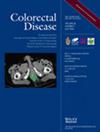Long-term survival outcomes in young-onset colorectal cancer: A population-based cohort study
Abstract
Aim
Long-term survival outcomes in young-onset colorectal cancer patients are contradictory and inconsistent. Some studies report overall survival to be significantly superior compared with older adults, while others report worse survival. Worldwide, the incidence of young-onset colorectal cancer has, alarmingly, nearly doubled since the 1990s, in stark contrast to that in those over 50 years of age. Long-term survival in young-onset colorectal cancer has not been explored in the Australian population. The aim of this study was to investigate cancer-specific and overall survival up to 10 years.
Method
This was a retrospective population-based cohort study. All colorectal cancer diagnoses between 2001 and 2020 in the state of Queensland, Australia were reviewed. Young-onset colorectal cancer (20–49 years) was compared with late-onset colorectal cancer (50 years+).
Results
There were 52 697 adults diagnosed with colorectal cancer in Queensland. Young-onset colorectal cancer accounted for 7.7% of these. Young-onset colorectal cancer had a greater proportion of Stage III and IV disease than the late-onset group (66% vs. 59%, p < 0.001). Despite this, young-onset colorectal cancer had statistically significant improved overall survival at all time points to 10 years (p < 0.001). Stage-for-stage cancer-specific survival to 10 years was superior in all stages in young-onset colorectal cancer (p < 0.001).
Conclusion
Both stage-for-stage cancer-specific and overall survival were superior in young-onset colorectal cancer compared with those aged 50 years and above, up to 10 years.


 求助内容:
求助内容: 应助结果提醒方式:
应助结果提醒方式:


